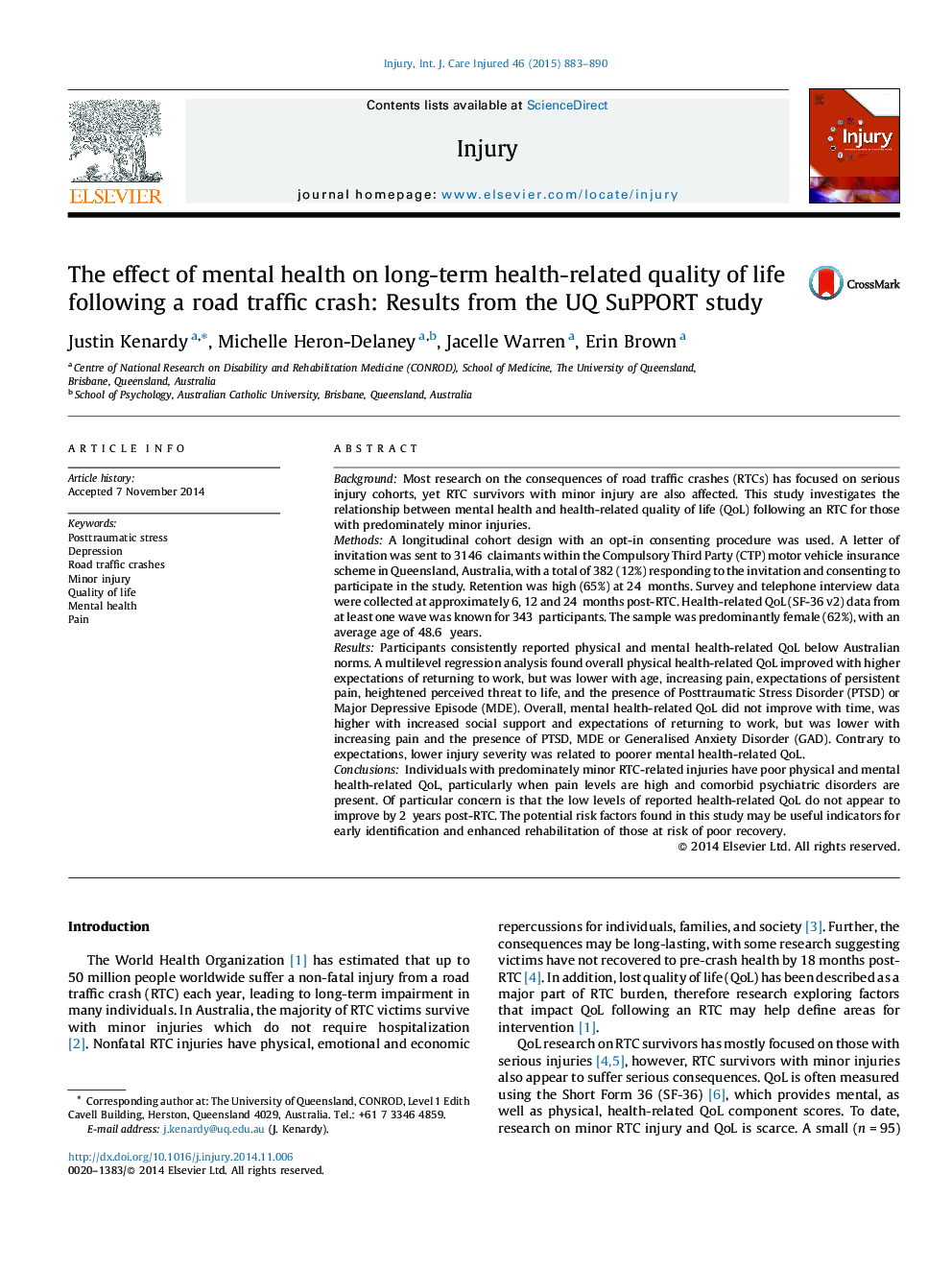| کد مقاله | کد نشریه | سال انتشار | مقاله انگلیسی | نسخه تمام متن |
|---|---|---|---|---|
| 3239333 | 1205997 | 2015 | 8 صفحه PDF | دانلود رایگان |

BackgroundMost research on the consequences of road traffic crashes (RTCs) has focused on serious injury cohorts, yet RTC survivors with minor injury are also affected. This study investigates the relationship between mental health and health-related quality of life (QoL) following an RTC for those with predominately minor injuries.MethodsA longitudinal cohort design with an opt-in consenting procedure was used. A letter of invitation was sent to 3146 claimants within the Compulsory Third Party (CTP) motor vehicle insurance scheme in Queensland, Australia, with a total of 382 (12%) responding to the invitation and consenting to participate in the study. Retention was high (65%) at 24 months. Survey and telephone interview data were collected at approximately 6, 12 and 24 months post-RTC. Health-related QoL (SF-36 v2) data from at least one wave was known for 343 participants. The sample was predominantly female (62%), with an average age of 48.6 years.ResultsParticipants consistently reported physical and mental health-related QoL below Australian norms. A multilevel regression analysis found overall physical health-related QoL improved with higher expectations of returning to work, but was lower with age, increasing pain, expectations of persistent pain, heightened perceived threat to life, and the presence of Posttraumatic Stress Disorder (PTSD) or Major Depressive Episode (MDE). Overall, mental health-related QoL did not improve with time, was higher with increased social support and expectations of returning to work, but was lower with increasing pain and the presence of PTSD, MDE or Generalised Anxiety Disorder (GAD). Contrary to expectations, lower injury severity was related to poorer mental health-related QoL.ConclusionsIndividuals with predominately minor RTC-related injuries have poor physical and mental health-related QoL, particularly when pain levels are high and comorbid psychiatric disorders are present. Of particular concern is that the low levels of reported health-related QoL do not appear to improve by 2 years post-RTC. The potential risk factors found in this study may be useful indicators for early identification and enhanced rehabilitation of those at risk of poor recovery.
Journal: Injury - Volume 46, Issue 5, May 2015, Pages 883–890